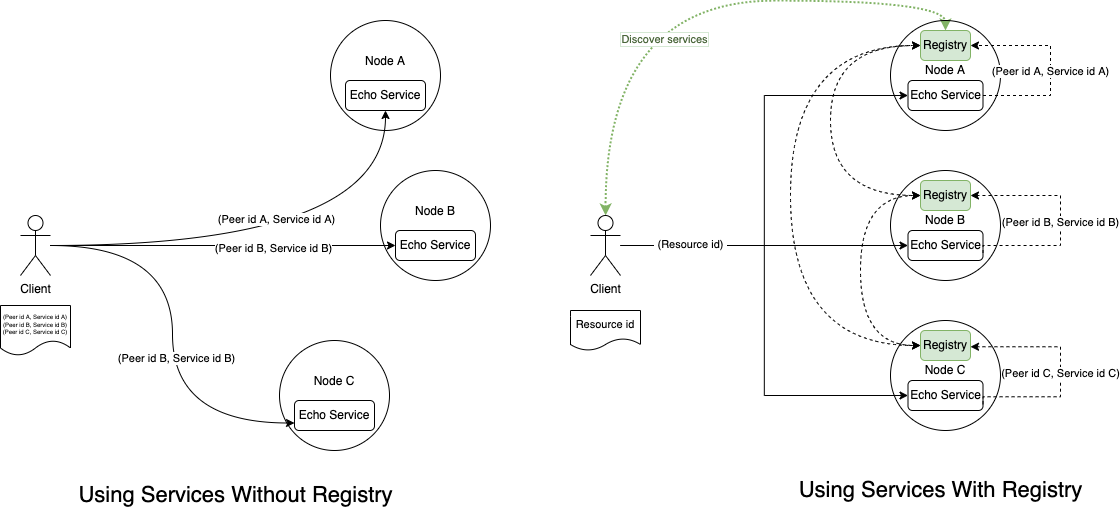Registry is an essential part of the Fluence network protocol. It provides a Resources API that can be used for service advertisement and discovery. Registry is available (built-in) on every Fluence node, and it provides service advertisement and discovery. The component allows creating relationships between unique identifiers and groups of services on various peers, so that service providers can either join or disconnect anytime and be discoverable on the network.
There are many services in the network on different peers, and there should be a way to find and resolve these services without prior knowledge about exact identifiers. Such an approach brings robustness and flexibility to our solutions in terms of discovery, redundancy and high availability.
In centralized systems, one can have centralized storage and routing, but in p2p decentralized environments, the problem becomes more challenging. Our solution for the problem is Registry, a purpose-driven distributed hash table (DHT), an inherent part of the Fluence protocol.
However, Registry is not a plain key/value storage. Instead, it is a composition of the Registry service for each network participant and scheduled scripts maintaining replication and garbage collection. Thus, if you want to discover a group of services on different peers without prior knowledge, you should create a Resource. A resource is a group of services or peers united by some common feature. Any service is represented by a combination of service_id and peer_id, it is called a Record.
Why is Registry important?
Scalability, redundancy and high availability are essential parts of a decentralized system, but they are not available out of the box. To enable them, information about services should be bound with peers providing them. Also, such networks are constantly changing, and those changes should be reflected and resolvable to provide uninterruptible access. So there's a need to have a decentralized protocol to update and resolve information about routing, both global and local.
A complete workflow covering installation of Registry, creating Resources, registering services etc. can be found here.
Comprehensive documentation on Fluence can be found here. In particular, it includes Aqua Book. Also, check our YouTube channel. This presentation at one of our community calls was especially dedicated to Registry.
Resources API is defined in the resources-api module. Service API is defined in the registry-service module. For the details, check the API Reference.
- aqua-tests contains tests for the Aqua API and use it in e2e tests
- aqua is the Registry Aqua API
- builtin-package contains a build script and config files used for building a standard distro for the Rust peer builtins
- service is the Rust code for the Registry service
Please, file an issue if you find a bug. You can also contact us at Discord or Telegram. We will do our best to resolve the issue ASAP.
Any interested person is welcome to contribute to the project. Please, make sure you read and follow some basic rules.
All software code is copyright (c) Fluence Labs, Inc. under the Apache-2.0 license.

